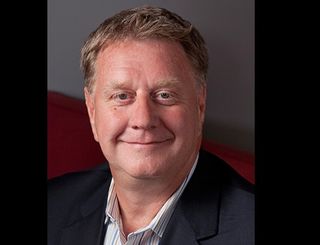Publicis Puts Its Upfront in Muszynski’s Hands

In the upcoming upfront, veteran media buyer John Muszynski will be a very big deal.
Publicis, one of the giant ad agency holding companies, has restructured and consolidated its media investment operations, and its TV negotiations in the upfront will be handled by the longtime senior exec Muszynski, according to Dave Penski, CEO of the new Publicis Media Exchange.
Publicis has four big media agency brands. In past years, each one went to market separately. This year, all of those agency’s investment people, responsible for $15 billion-$18 billion worth of TV spending, will report up to Penski.
The idea of putting together TV buying in order to have more leverage is hardly new. For years, WPP’s GroupM funneled its agency’s spending through GroupM chief investment officer Rino Scanzoni. And before that, Interpublic Group formed Magna Global to collect marketplace intelligence and negotiate with the half-dozen companies that control most of the major TV networks.
Muszynski had a long career in media at Leo Burnett and Starcom in Chicago before helping to grow Publicis’ new agency Spark, and is a member of the Broadcasting & Cable Hall of Fame. Making him the point man for upfront negotiations was an easy call, Penski says. “He’s really good at seeing the strategy. Relationship-wise, I don’t think there’s anyone better, certainly in our company, and you could argue industry-wide.”
Central Intelligence
Publicis’ decision to centralize means that as few as five negotiators will handle as much as 85% of the money that flows into this year’s upfront, down from about eight in recent years. This year, the upfront market is expected to be strong, favoring network sales executives, so the buyers need all the help they can get in trying to control prices for their clients.
Broadcasting & Cable Newsletter
The smarter way to stay on top of broadcasting and cable industry. Sign up below
By putting Publicis’ buying together, “we have very high spends on different networks, 35% or 40% of their spend,” Penski calculates. “We’re going to have great leverage there. For our clients, all boats should rise.”
Penski figures Publicis should have a 30%-33% share of the TV market. If that doesn’t lead to better prices for Publicis clients, than this change will have been a failure, he says.
But Penski says Publicis will focus on what’s best for clients, rather than simply building negotiating clout.
Muszynski will decide when being a part of a group deal is good for an individual agency or client. In fact, Penski expects Muszynski to do just a handful of deals. But those will be huge, accounting for about half of Publicis’ TV dollars.
Because of the unusual number of agency reviews by huge clients this year, Publics has a different mix of clients. That means it will be spending more with some media companies and less with others. That’s good for Publicis. “If everyone remains flat, we’re not going to get a good price out of this marketplace,” Penski says.
Where Publicis is spending less, but an individual client is spending more, that client is better off having a separate negotiation, he says.
As a negotiator, Muszynski will not have access to individual client strategy. “He’ll only have access to client spending. All strategy stops at the agency level,” Penski says, in order to respect client confidentiality, especially when clients of the different agencies compete and conflict.
But Muszynski will know he’s got, say, $1.5 billion to spend with a particular media company, and that’s the number a Linda Yaccarino, a Toby Byrne or a Jo Anne Ross cares about, Penski says, ticking off the names of the heads of ad sales for NBCUniversal, Fox and CBS, respectively. “He going to argue over the rate of [CPM] change overall. And then the deal will be finalized inside each of the agencies,” Penski says.
Helen Lin, a Zenith veteran like Penski, will be in charge of negotiating NewFront deals with digital media companies. And Amanda Richman, who had been in charge of investment for Starcom, will be in charge of innovation during the upfront.
“Clients want to beat the marketplace by 3% or 5%. And certainly we need to do that. But I think as important as that is, what is our data story, what is our content story, what are we doing from a precision video standpoint, what are we doing to get better information from our partners,” Penski says. “Amanda is going to really push for that. Yeah it’s great that we got the best price. Believe me I’m not going to discount that. But at the same time I want to be able to say to a client, here’s what we got you first by being the largest spender.”
Jon has been business editor of Broadcasting+Cable since 2010. He focuses on revenue-generating activities, including advertising and distribution, as well as executive intrigue and merger and acquisition activity. Just about any story is fair game, if a dollar sign can make its way into the article. Before B+C, Jon covered the industry for TVWeek, Cable World, Electronic Media, Advertising Age and The New York Post. A native New Yorker, Jon is hiding in plain sight in the suburbs of Chicago.

